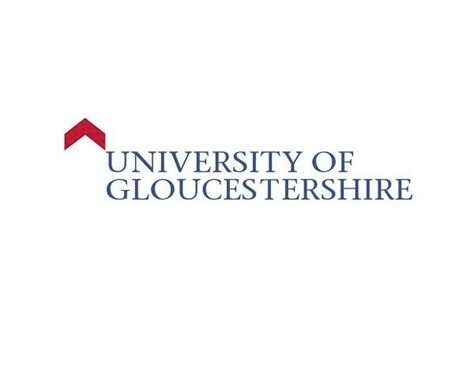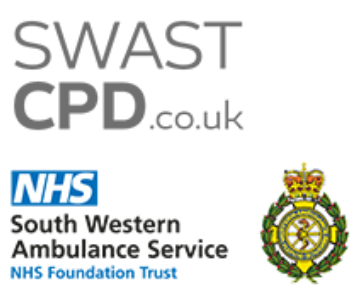



**Now open for Applications**
If you are an NQP who has completed a Practice Education (Mentorship) module as part of your BSc with UoP – you are not required to complete another module for your NQP portfolio.
You should only consider completing this module if you are able to commit to completing a 4000-word assignment. If you wish to complete a Practice Education module, yet you are uncertain about your ability to commit, please Click Here to access the non-accredited version of this module.
This interactive distance learning module has been created in partnership with the University of Gloucestershire.
Created with registered healthcare professionals (primarily Paramedics) in mind, and the language may at times refer to ambulance placements or paramedics specifically.
Ideal for staff who wish to complete an approved Practice Educator course but are also keen to challenge themselves academically at Masters level (level 7). This module carries 30 credits which can be used towards an MSc. If you are unable to commit to this level of learning at this time, please consider the non-accredited option.
Unfortunately, ECAs are not eligible for this course at this time.
February 2026 start:
- Module launch: Start of teaching Mon 23rd February 2026 11-13:00
- Assignment submission deadline: Thurs 30th July 2026
*The module leads would like to meet all students virtually (via Teams) for the morning on first day of teaching. This is an asynchronous (e-learning) module so attendance only required for the first day and optional student support drop in sessions.
Deadline for applications: Monday 26th Jan 2026*
Please contact us if you missed the deadline for March 2025 & would like to apply as there may be remaining places & still time to apply.
Optional virtual drop-in session dates:
Feb 2026 Cohort:
- Contact session – 23rd March 2026 – 11.00-12.00
- Contact session – 20th April 2026 – 11.00-1300
- Contact session – 25th May 2026 – 11.00-12.00
- Contact session – 22nd June 2026 – 11.00-13.00
These sessions are for students to gain assessment support.
The role of supporting a learner in practice has changed and the course looks critically at the way that we support learners to ensure that the learning experience is an effective and robust one, that involves the learner and their needs, and is a collaborative and supportive approach. The new course will ensure that the learner is well supported and that the approaches we use are based on research and evidence based practice.
It will also encourage a consistent approach to the practice education of all staff including non-clinical staff, students and new employees across the ambulance services
‘Practice based learning takes place during placements, and involves a range of learning opportunities for student development. Students apply and consolidate their learning, bringing together the academic theory learnt in the classroom, the workplace practice used to develop their skills and abilities and the competences needed to register. Practice learning is supervised and structured to enable progress towards learning outcomes and usually involves assessment of the learner (HEE 2021)’
- This course is fully funded.
- This is a 30-credit Level 7 course.
- This course is an e-learning module and it can be completed at your own pace.
- The theoretical element of the module should take approximately 35hrs to complete, and involves the completion of practice based learning.
- The assessment for the completion of the module consists of a 3,000 word assignment and four 500-word reflections in a portfolio.
Pre-Course Materials
Other Health professionals working in the ambulance services will need to access their own Standards or Codes for teaching in practice to include:
Registered Nurses need to access (2019):
Standards for student supervision and assessment: Sections 6 to 10 for their profession specific standards – NMC PDF 1
To include:
6. Assessor Roles
7. Practice assessor: responsibilities
8. Practice assessor: preparation
9. Academic assessor: responsibilities
10. Academic assessor: preparation
GMC Registrants needs to access for their profession specific standards:
Designing and maintaining postgraduate assessment programmes (2019) – PDF 1
Approving changes to curricula, examinations and assessments, equality and diversity requirements (2015) – PDF2
Download PDF 1 – GMCPlease note the assessment process consists of the following:
- 3,000-word reflective assignment.
- Portfolio of mentoring evidence that consists of 4 reflections of 500 words each, a Lesson Plan for a lesson that you will be expected to provide to your learner in practice and a log of mentoring activities.
Assessed Learning Outcomes
At the end of the module the learner will be expected to be able to:
- Work effectively demonstrating and upholding the regulatory role and professional requirements of the Practice Educator for paramedic education
- Support and deliver educationally appropriate practice-based learning, teaching and assessing, demonstrating synthesis of new knowledge, skills and values.
- Demonstrate excellent interpersonal communication skills, relevant to practice-based teaching, learning and assessment, in order to conduct and support objective, evidence-based assessments of students.
- Facilitate the professional development of students, peers and colleagues by applying theory underpinning learning and teaching to support empathetic coaching, supervision and mentorship.
- Proactively support students from a range of professional and vocational backgrounds in the practice setting, utilising a range of evidence-based feedback methods. This will include providing constructive feedback to facilitate professional development in others.
This is a 30-credit Level 7 course which will contain knowledge checks, coursework and a final assessment.
Please fill in the application form below and apply.
Please note application deadline in “Key Dates” section above.
Access the Practice Educator Handbook for reference or as a taster below.
(This will NOT record you as completing the course- go below to the e-learning module access the course in full).
Enter your SWASFT email address below to open the handbook. (You will also be sent the link to your SWASFT email address for future refence).
We want as many people as possible to be able to use this module.
Some pages on this site link to digital resources such as Word documents, PDF documents, videos and e learning content developed by third parties. We also link to websites and resources hosted on third party platforms.
The Module was authored in Rise 360. Rise 360 supports WCAG 2.1 Level AA, including screen readers, keyboard navigation, visible focus indicators, and more. Rise 360 courses work with the latest versions of NVDA, JAWS, VoiceOver, and TalkBack in our supported browsers. For example, that means you should be able to:
- zoom in up to 300% without the text spilling off the screen
- navigate most of the course using just a keyboard
- navigate most of the course using speech recognition software
- listen to most of the course using a screen reader
- access transcripts to the videos
- access subtitles for the videos
We’ve also made the course text as simple as possible to understand; and there is an option to listen to an audio recording of the text. We know some parts of this course are not fully accessible:
- some pages are not capable of zooming to 300% without text spilling off the screen
- some pages are not easily navigable without a mouse
- some tables do not have row headers
- some pages have poor colour contrast
- some heading elements are not consistent
- some images do not have good alternative text
- some buttons are not correctly identified
- some documents are in PDF format and are not accessible
- the Knowledge Checks do not have audio
- the diagrams do not have audio
You will need to work your way through the lessons in order. They are designed to allow you to do the work in bite sized chunks, and each of them has knowledge checks at the end that must be completed before you move on.
The module can be done using the written text, or there are audio clips at intervals throughout each lesson; you just click on the play arrow to begin the audio. This will support those who have a learning support need or who prefer to listen to the information. If you have a disability or learning support need you are also able to increase the size of the written word.
You can also combine the two approaches if you prefer, as we want you to be able to progress through the module in your own way. You must complete the activities at the end of some of the audios and the knowledge test at the end as they are a way to check your learning and to highlight any knowledge gaps; we are unable to make them part of the audios. To use these activities/knowledge checks you need to follow the instructions provided with them.
